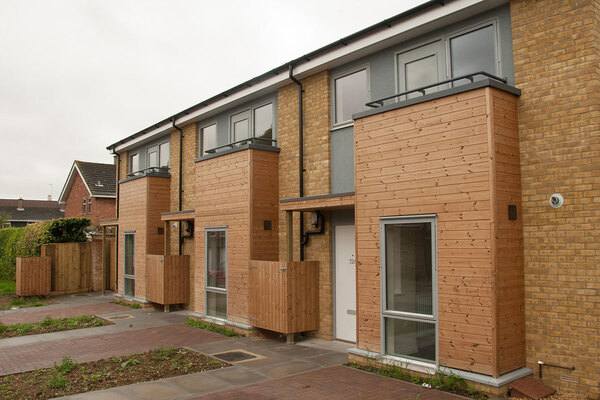King’s Speech: lawyers warn part of proposed leasehold reform could never make statute book
Legal experts have warned that while some of the changes in the leasehold bill are positive, there is a risk that the changes subject to consultation will never see the light of day.

According to the background briefing notes, the leasehold and freehold bill announced as part of the King’s Speech today “will address one of the longest-term challenges that the country faces: fairness in the housing market”.
The bill proposes to make it “cheaper and easier” for more leaseholders to extend their lease, buy their freehold, and take over management of their building.
A report by campaign group Commonhold Now, published yesterday, had called for all ground rents on all existing leases to be capped at £250 a year and all new build flats to be sold on a commonhold or share of freehold basis.
The government has instead announced plans to consult on capping existing ground rents. “Subject to that consultation, we will look to introduce a cap through this bill,” the briefing document reads.
It is the issue a number of lawyers have warned may never be realised as it will be politically difficult to achieve, and challenging to find the right balance between the competing interests of leaseholders and landlords.
One legal expert also pointed out that there is still some clarity needed on shared ownership leases.
Elsewhere in the bill, there will be an increase in the standard lease extension term from 90 years to 990 years for both houses and flats, with ground rent reduced to £0.
It will remove the requirement for a new leaseholder to have owned their house or flat for two years before they can benefit from the changes.
The bill will increase the 25% ‘non-residential’ limit preventing leaseholders in buildings with a mixture of homes and other uses, such as shops and offices, from buying their freehold or taking over management of their 46 buildings – to allow leaseholders in buildings with up to 50% non-residential floorspace to buy their freehold or take over its management.
The bill will set a maximum time and fee for the provision of information required to sell a leasehold property, such as building insurance or financial records, to make selling and buying easier.
It will require transparency over leaseholders’ service charges – costs should be in a “standardised comparable format” so they can be scrutinised and better challenged “if they are unreasonable”.
The bill will also replace buildings insurance commissions for managing agents, landlords and freeholders “with transparent administration fees” to “stop leaseholders being charged exorbitant, opaque commissions” on top of their premiums.
It will extend access to redress schemes for leaseholders to challenge poor practice and will require more freeholders to belong to the schemes so leaseholders can challenge them if needed.
It will scrap the presumption for leaseholders to pay their freeholders’ legal costs when challenging poor practice.
It will ban the creation of new leasehold houses so that, “other than in exceptional circumstances”, every new house in England and Wales will be freehold from the outset.
But the leasehold tenure for new build flats will not be scrapped.
Caroline Wild, a senior associate at law firm Forsters, said: “Some of the proposed changes will be beneficial and will streamline enfranchisement, making it easier to navigate each process. Other proposals will simply raise more questions and will require much more thought and consultation.
“The proposal for a consultation on capping all existing ground rents was included in the government’s February 2021 policy statement – there, the proposal was for ground rents to be capped at no more than 0.1% of freehold value.
“Given the difficult political arena and the need to find a balance between the competing interests of leaseholders and landlords, it is difficult to see this going through without a strong challenge, even with consultation.
“The argument will be over what compensation is to be offered to landlords and whether there is to be a statutory acquisition process. A number of funds, which quite possibly form part of pension funds, own large ground rent portfolios and this value cannot simply be wiped out.
Ms Wild described some of the measures as “easy wins” such as the requirement for all new houses to be sold as freehold. This is because since the Leasehold Reform (Ground Rent) Act 2022 came into force, the number of houses being sold on this basis is very small.
She added: “The proposed abolition of marriage value was perhaps the most controversial of the government’s past proposals and so it is not surprising that this did not feature in the King’s Speech.”
Katie Cohen, residential property partner at Keystone Law, agreed that the consultation on a proposal to cap existing ground rents will be a contentious and highly debated one. This is because of the financial impact a ban would cause.
Ms Cohen added: “Increasing the 25% threshold for mixed-use buildings to 50% will enable more buildings to qualify to acquire their freeholds or take over their management.
“The proposals to change the two-year ownership rule for leaseholders to qualify to extend a lease is simply common sense. It will allow those buying short lease properties to extend after the conveyancing process and be in line with the collective enfranchisement qualifying leaseholder criteria.
“The banning on the creation of leasehold houses is welcomed but many commentators will be disappointed that this does not extend to leasehold flats.”
John Stephenson, a partner at BDB Pitmans, said that the legislation will leave owners of leasehold flats with limited though useful benefits.
He said: “The government’s estimates suggest that just 1% of new houses are sold on a leasehold basis, down from 15% in 2016, and with ground rents capped at a peppercorn on new builds since June last year. It is a classic case of shutting the stable door after the horse has bolted.
“The legislation is disappointing for those already owning a leasehold house. Unless they can afford to buy the freehold and thus extinguish the ground rent – which can be expensive – they may find themselves continuing to pay ground rent.
“That rate will be capped but the legislation is unclear at what rate and the government may find itself having to compensate the owners of those ground rents. A consultation will follow shortly, but there is a very real risk legislation will fail to get onto the statute books before the end of this government’s term. There is no short-term respite.”
Mr Stephenson said he feels that flat-owners – who make up 70% of the new homes market – can be forgiven for feeling short-changed.
He added: “The promises of fundamental reform to the leasehold system appears to have lost much of its impetus, and that will disappoint all leasehold homeowners.”
Kevin Edwards, a legal director in the social housing team at Birketts, questioned what will happen to shared ownership leases.
He said: “Shared ownership is a key supporting element of the affordable housing programme across the country (and invariably affects houses) and most providers rely heavily on shared ownership sales to cross-subsidise their affordable offering. We would therefore argue that careful consideration should be given to this aspect and the extent that it affects registered providers.
“We recognise that an exclusion of only registered providers would not seem to fully deal with the government’s concerns on private sector abuse, as many for-profit providers now exist, so an exclusion of charities from the leasehold ban would seem appropriate to circumvent this.”
Sign up for our regulation and legal newsletter
Already have an account? Click here to manage your newsletters











